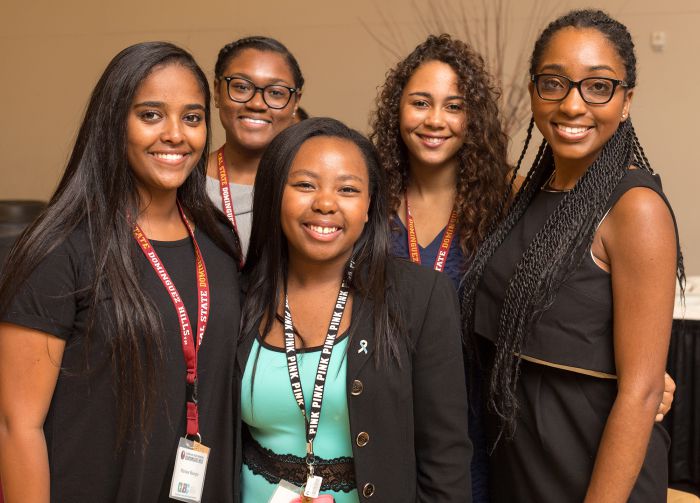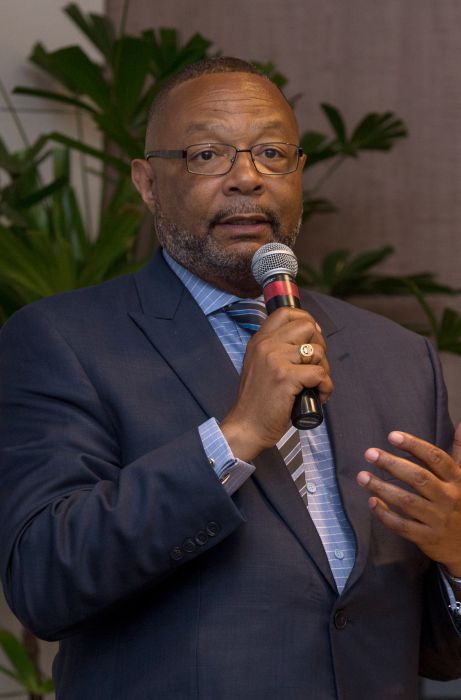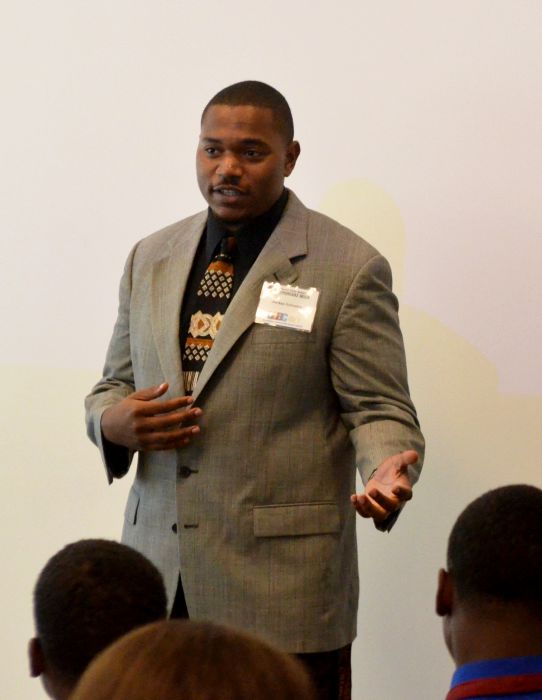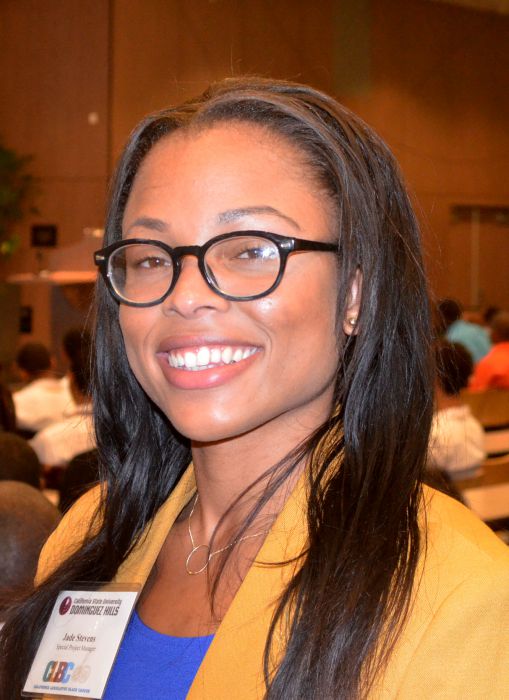
Miriam Haregot, a senior at Arcadia High School, is already confident about her communication skills and enjoys speaking with others, but she still felt fortunate to have been chosen to attend the African American Leaders for Tomorrow (AALT) conference at California State University, Dominguez Hills (CSUDH) to sharpen those skills and learn what it takes to embark on a successful college career.
For the third straight year, the four-day conference, which took place July 29-Aug. 1, was hosted on campus by the California Legislative Black Caucus (CLBC) in partnership with CSUDH to cultivate the next generation of African Americans to become leaders in their communities and the state. During the conference, the students were provided leadership training and workshops regarding the college experience and career development.

Haregot, who plans to major in business administration when she goes to college, joined more than 100 other African American high school students from across the state at the college preparedness conference.
“My personality is very outgoing and I like to be in control. I also have great communication skills, so I feel that business is the best major for me at this point. I also want to look into public relations or become a music agent because the entertainment industry is really attractive to me,” said Haregot. “When I go to college, I hope to find myself, be more independent and not have to rely on anyone. I want to experience the ‘real world,’ and I think this conference will help me out a lot in that way.”
The AALT students lived on campus and received free meals and program materials, as well as transportation during the conference, and travel was provided for students living outside of Los Angeles County to come to CSUDH.
“While you’re here learning all these things, there are a couple of key things you may want to consider. One is why the Black Caucus and the people at this university are going through all this trouble for you,” said CSUDH President Willie J. Hagan during the conference’s opening reception. “The answer is very simple. From my perspective, although these four day are for you, they are not about you at all. It’s about you becoming the leaders that we think you can be. It’s about what you can do for this country, for your community, for your race and for all races that exist in this country. We are all depending on you to make this country a better place, and I have a lot of faith that you can do that.”

California Assemblymember Reggie Jones-Sawyer, who represents District 59 and is chair of the CLBC, provided the welcome remarks during the opening reception and mentioned how successful and popular the conference has become over the years.
“We have a great tradition of African Americans who have served in the legislature, and the African American Leaders of Tomorrow conference probably touches all our members more than any of the other programs that we have,” said Jones-Sawyer, who mentioned that the conference has grown so popular that the CLBC had to turn away more than 100 applicants this year. “This is one of the best programs that I know of that gets young people ready for college. A high number of students who go through this program not only go to college, but also finish.”
Elijah Griffin, a 16-year-old sophomore at La Salle High School in Pasadena, wants to major in sports communications with the hopes of becoming a broadcaster, but that’s his “Plan B.”
“I love talking to people and love sports, but my real dream is to become an actor and perform. If that doesn’t work out, I would definitely go into news reporting,” said Griffin, who would like to attend Princeton University or another Ivy League school. “That’s why this conference is important to me. I expect to learn a lot from the people who have already achieved success, the people who have done it and succeeded in their chosen fields. I plan to soak up as much good information as I can.”

Many of the AALT workshops and discussions were led by CSUDH staff and alumni, and covered an array of topics such as personal branding, the college experience and college readiness, and plotting a career path. They also had some fun on campus during such activities as a scavenger hunt and an AALT student talent show.
The workshop “Have a Healthy College Experience” was led by Jordan Sylvester, president of CSUDH’s Associated Students, Inc., and Stephen Rice, associate dean of students in the Division of Student Affairs.
“It’s important to understand and identify the difference between an associate and a friend. When you come to college, you need to know that everyone is not going to be your friend, and that’s okay,” said Sylvester. “It’s also important to recognize the actions of people. After I was going to college for a while I started noticing that there are what I call ‘semester friends.’ When you’re in a class with a semester friend, everything you need to know about what happens in class can come from that person–you’re buddy-buddy. But then, when the semester ends, the next time you see that person on campus he doesn’t know who you are. So you can classify that person as an associate.”
The workshop “Perceptions and First Impressions” was led by alumni Jade Stevens (Class of 2011, B.S., communications), who is now a projects associate at Lagrant Communications; Leonidas Sloan, assistant coordinator and former student president of CSUDH’s Male Success Alliance, and Brenda Mendez (Class of 2012, M.S., education), a career counselor in the university’s Career Center.

The workshop focused on such advice as the proper attire to wear during interviews and on the job, having the right social media presence, developing an “elevator speech,” and other things to consider when trying to make a good impression in the workforce and in life.
“I like to wear a tie clips because I’m tall and I like walking around campus without my tie flipping and flopping,” said Sloan. “I sometimes wear a bow tie on campus to switch it up, but I don’t try to be too fashionable. I still want to look professional, but wearing one once in a while is okay.”
For the female students, Stevens also provided a few business fashion tips, as well as some things to avoid.
“Know the difference between what’s considered business and what’s considered business casual. For women going to interviews, I would say don’t wear club dresses then cover them up with businesses jackets to try to look professional,” said Stevens. “I’ve seen this before. You may think it looks cute, but there’s a time and a place for that. Club dresses belong in a club. Also make sure you have a nice pair of black slacks, a black skirt and a button-up blouse. This will show you are mindful of how you are coming across and that first impressions are important to you.”